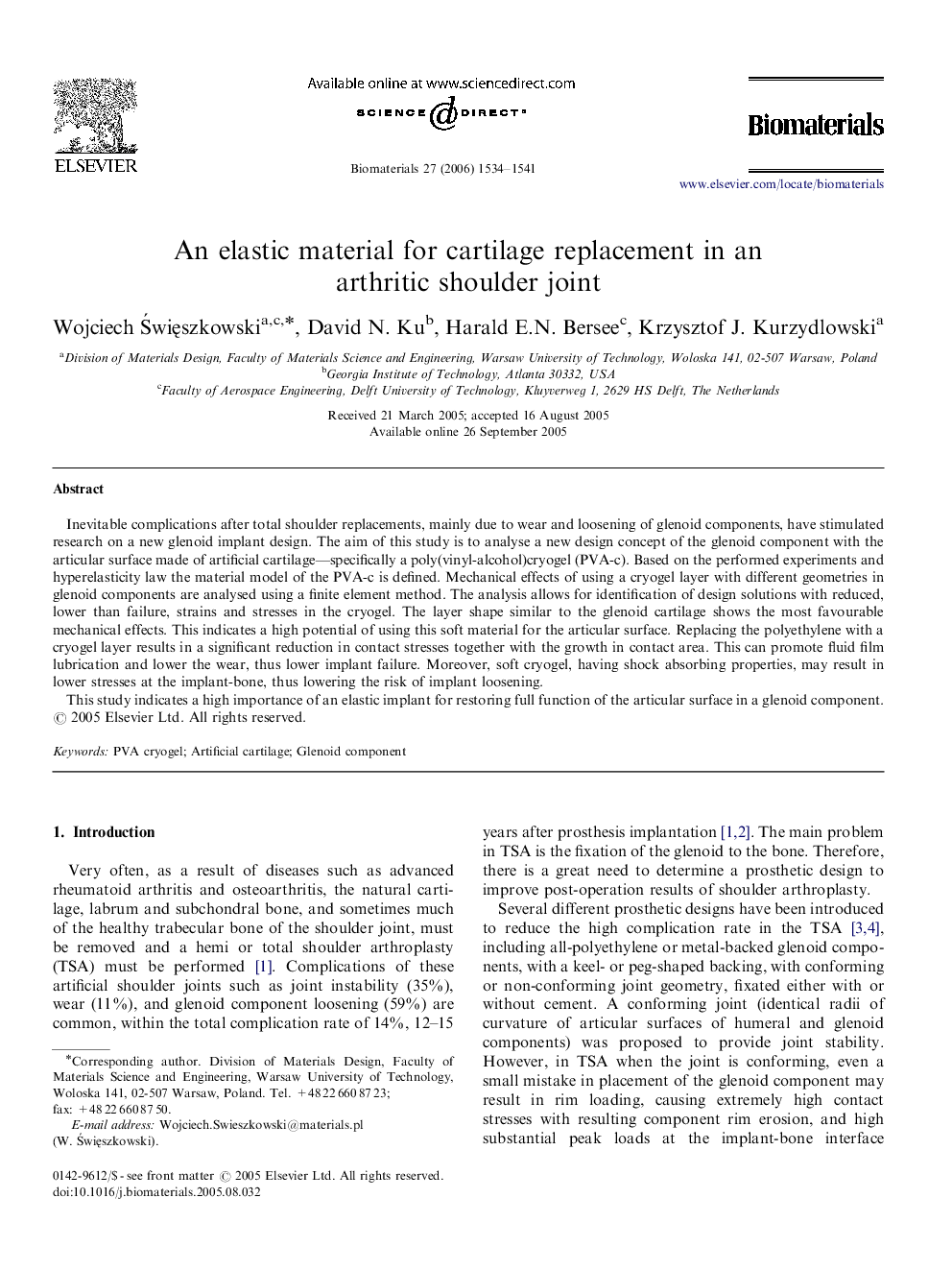| Article ID | Journal | Published Year | Pages | File Type |
|---|---|---|---|---|
| 11564 | Biomaterials | 2006 | 8 Pages |
Inevitable complications after total shoulder replacements, mainly due to wear and loosening of glenoid components, have stimulated research on a new glenoid implant design. The aim of this study is to analyse a new design concept of the glenoid component with the articular surface made of artificial cartilage—specifically a poly(vinyl-alcohol)cryogel (PVA-c). Based on the performed experiments and hyperelasticity law the material model of the PVA-c is defined. Mechanical effects of using a cryogel layer with different geometries in glenoid components are analysed using a finite element method. The analysis allows for identification of design solutions with reduced, lower than failure, strains and stresses in the cryogel. The layer shape similar to the glenoid cartilage shows the most favourable mechanical effects. This indicates a high potential of using this soft material for the articular surface. Replacing the polyethylene with a cryogel layer results in a significant reduction in contact stresses together with the growth in contact area. This can promote fluid film lubrication and lower the wear, thus lower implant failure. Moreover, soft cryogel, having shock absorbing properties, may result in lower stresses at the implant-bone, thus lowering the risk of implant loosening.This study indicates a high importance of an elastic implant for restoring full function of the articular surface in a glenoid component.
